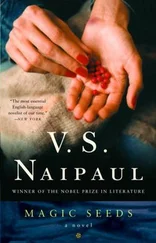Marsh sighed. He pressed the backs of his fingers to his neck and cracked his knuckles against his jaw. Stephenson cleared his throat; Marsh dropped his hands.
Years of polishing had imbued the wood-paneled walls with a satiny finish that reflected the soft glow of lamplight. The walls matched the bookcases, and Stephenson's desk. Above the wainscoting hung maps; photographs of a young, two-armed Stephenson in flying leathers; and a few of his wife, Corrie's, watercolors.
Stephenson had married a Yank from Tennessee. She tended to paint landscapes and nature studies from memory, evoking the rolling hills of her home. Marsh's mentor derived a strange amusement from decorating his office with images of plants foreign to a country of gardeners.
“Well,” said Stephenson at last, still squinting at the film scraps, “I'm quite impressed. When you cock something up, you do it good and proper.”
“Sir?”
“I sent you to Spain to run a simple errand.”
“Sir—”
“Somebody just swans in and torches your contact and where are you, hmmm? Off getting pissed in the pub.”
“Sir, it's not as if some pikey came traipsing along with a bucket of kerosene—”
“Hmm. This is interesting.” Stephenson held up one of the scraps. “What do you make of this one?”
Marsh took the film in one hand and the loupe in the other. The fragment contained less than a dozen frames, several of which had been darkened by heat damage. A sequence of eight or nine frames—a fraction of a second—showed a woman standing in front of a brick wall, and then just the brick wall, with no transition from one frame to the next. She was nude except for the belt at her waist connected to her head by what appeared to be wires.
“Looks like they stopped the camera.” He handed the items back to Stephenson. “Or perhaps this was spliced together from various sources.” He pointed at the film scrap. “Those things in her head. That's what I saw in Barcelona. Different woman, though.” He shrugged. “It's not the only oddity in the film, sir.”
Stephenson waved him toward a chair upholstered in button-tufted chintz. As Marsh took the load off his feet, the old man opened another desk drawer and pulled out a bottle and two glasses.
“Brandy?”
“Please.” Marsh sank farther into the chair.
“I imagine you could use it.”
A knock sounded at the door while Stephenson poured. He called, “Yes, Marjorie.”
His secretary peeked inside. “Sir, Commander Pryce from the Admiralty wants—Oh! You're back.”
Marsh nodded at her. “Hi, Margie.” She seemed pleased to see him. But she was a married woman, and that caused a pang of loneliness.
“What ever it is, he'll have to wait,” said Stephenson.
“Sir, he said—”
“Not now. I'll call him back.”
She nodded and withdrew.
As the head of circulating section T (short for “technological surprise”), Stephenson was responsible for gathering intelligence pertaining to military technologies under development within Nazi Germany. Although the section itself was only a few years old, it descended from the historical roots of the organization prior to the Great War, when foreign espionage was the purview of the Admiralty, focused primarily on gauging the strength of the Imperial German Navy. Politically savvy Stephenson therefore maintained close ties with the Admiralty, not least because C, the head of SIS, was a career naval officer.
Marsh accepted one of the glasses. Stephenson held his up: “To safe travels, and safe returns.” Clink . This ritual had become their custom. Insofar as Stephenson had been a father to Marsh, tradecraft was the family business.
“This one turned out to be more complicated than we realized,” said Stephenson, settling back into his own chair. Marsh grimaced. It was the nearest thing to an apology he'd ever heard out of the old man. And that made him uneasy.
Stephenson gestured at the desk with his glass. “So. What should we do with this mess?”
“It might be possible to copy the remaining frames and to splice together a rough approximation of the original film. That's what I'd do.”
Stephenson nodded. “I'll put out a few feelers. We'll need somebody good, somebody who can keep his mouth shut. It may take a while. And the photograph?”
“Could be anywhere. Probably useless, at least until we know more.”
Stephenson nodded. “And what of the documents?”
Marsh shrugged. “Difficult to say. One gets the impression that they're excerpts from medical reports.”
“Your man did mention a doctor, I note,” said Stephenson, sifting through Marsh's report again. “Von Westarp? Medical doctor, presumably.” He put the loupe back in his desk and produced a packet of cigarettes. An American brand, Lucky Strike.
Over the skritch of Stephenson's match, Marsh added, “He also said something about children. Got rather worked up about it. Peculiar.”
Around the cigarette dangling from his lips, Stephenson asked, “And what, I wonder, does one thing have to do with the other?”
“My thoughts exactly, sir.”
The two men watched in quiet contemplation as shadows slowly inched along the street. The tip of Stephenson's cigarette flared marigold orange in the growing darkness.
He stamped it out in a marble ashtray and turned on another lamp. “Right, then. First things first. I'm opening a new file. Until we resolve this issue, or it resolves itself, refer to this matter under the rubric 'Milkweed.'” At this last he nodded at the wall over Marsh's head.
Marsh craned his neck. Another of Corrie's watercolors hung over the chair. “Understood.”
“And as for Milkweed, there are a few people who ought to be apprised of this. If I can call them together on short notice, are you free this evening, Marsh?”
“Yes, sir.”
“Excellent. I'll ring you.”
Stephenson's car, a gleaming cream-colored Rolls Royce Mulliner, rolled up at half seven. A gray cloud roiled out when Marsh entered. The interior smelled of leather and Lucky Strikes. Stephenson rapped the roof once Marsh was settled, signaling his driver to proceed.
From Marsh's home in Walworth they drove west. The Rolls thumped as they crossed onto the steel spans of Lambeth Bridge. Stephenson's driver swung the car north on Millbank when they passed beneath a granite obelisk and its pineapple finial at the far side of the Thames.
Soon Victoria Tower loomed out of the night, a square stone giant wrapped in fog and lamplight. They passed the Perpendicular Gothic filigrees of Westminster Palace: Tudor details on a classic body, as somebody once said. Marsh noted the gradations where the crumbling Yorkshire limestone was being replaced with honey-colored clipsham.
They skirted Parliament Square, passed the Cenotaph, and continued north onto Whitehall.
“Sir, where are we going?”
Stephenson turned. “Do you know what I miss the most about the old days?”
“Your arm?”
“Ha. Cheeky lad,” said the older man. “No. Back then, we didn't have so many damnable meetings. Now it's all we ever do.” His eyes twinkled. “This one's a bit above your regular pay grade, I'm afraid. I trust you won't mind, just this once.”
Oh, hell . That meant sitting in a room full of tossers who would discount Marsh the moment he opened his mouth. He'd had quite enough of that at university.
The car passed through the narrow arch of a long, low screen into the courtyard of a pseudo-Palladian three-story brick building. The Admiralty.
Marsh followed Stephenson through a side door into a neoclassical rabbit warren. Their footsteps echoed through marble colonnades, twisting stairwells, and narrow corridors. At length the older man stopped before a single door of simple walnut. He knocked.
Читать дальше









